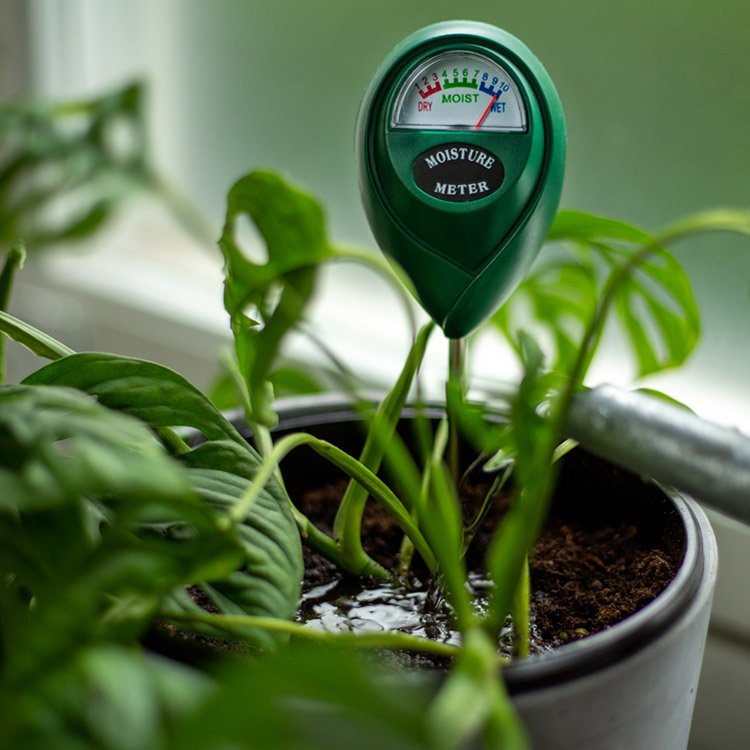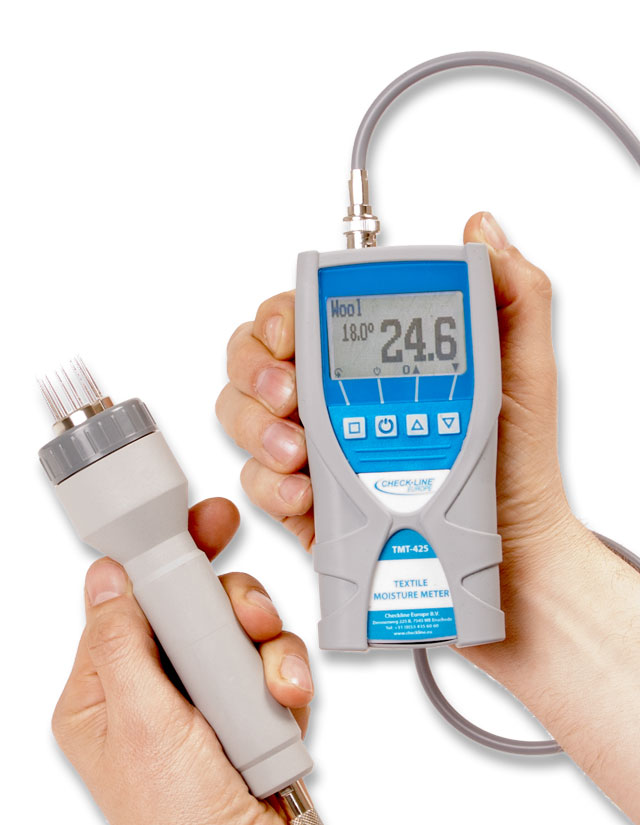The Ultimate Overview to Moisture Meters: A Comprehensive Review and Exactly How They Can Save You Cash
In the realm of building upkeep, building and construction, and various sectors, the value of precisely measuring wetness levels can not be overstated. Wetness meters act as indispensable devices in detecting and checking moisture web content in products, assisting in stopping expensive damages and making certain the top quality of products. Understanding the subtleties of different kinds of moisture meters, their applications, and the possible cost-saving benefits they supply can be a game-changer for professionals and services alike. Uncovering how these gadgets can not only enhance processes yet also add to economic savings is a trip worth starting.
Kinds Of Moisture Meters
One common kind is the pin-type dampness meter, which determines the electrical resistance between 2 pins placed into a product. Pinless dampness meters, on the various other hand, usage electro-magnetic sensing unit plates to scan a bigger area without causing damages to the product's surface area.
Infrared moisture meters gauge the thermal homes of a material to establish its wetness material non-invasively, making them beneficial for applications where pin or pinless meters might not be suitable. Recognizing the different types of dampness meters readily available can aid industries pick the most appropriate device for their certain dampness dimension needs.

Advantages of Utilizing Moisture Meters

Additionally, using moisture meters can lead to enhanced power performance. In farming setups, dampness meters play a critical function in enhancing crop returns by enabling farmers to monitor soil wetness degrees and make educated watering decisions.
Just How to Choose the Right Moisture Meter
Picking the ideal moisture meter involves considering essential variables such as material compatibility, measurement range, and calibration precision. When picking a moisture meter, it's vital to ensure that the meter appropriates for the specific material you will certainly be testing. Various materials have differing electric properties that can impact wetness readings, so picking a meter made for your product is essential for exact outcomes. Furthermore, take into consideration the measurement series of the moisture meter. Guarantee that the meter can spot dampness degrees within the array needed for your applications. Calibration accuracy is an additional critical variable to keep in mind (Moisture Meter). Select a wetness meter with reputable calibration to make sure precise and constant readings. Some meters may call for routine calibration adjustments, so recognizing the calibration process is very important. By very carefully examining these aspects, you can pick a moisture meter that fulfills your demands and gives exact wetness measurements for your projects.
Appropriate Techniques for Moisture Meter Use
To make sure accurate dampness readings and make best use of the effectiveness of find here a moisture meter, utilizing correct strategies is vital. When making use of a pin-type wetness meter, put the pins or probes right into the product being examined until they make complete call. Ensure the pins are vertical to the click over here surface area to get the most accurate reading. For pinless moisture meters, hold the device level against the material and relocate gradually to cover the whole location for an average reading. It's vital to calibrate the wetness meter according to the material being evaluated to improve accuracy. Take numerous readings throughout the surface area and average them out for an extra trustworthy result. In addition, guarantee that the material being tested is acclimated to the atmosphere to avoid skewed analyses. Regular upkeep of the dampness meter, such as cleaning up the pins or sensor, is also essential to ensure accurate and regular readings. By adhering to these correct methods, customers can depend on their dampness meter to supply trustworthy moisture degrees, assisting in avoiding expensive damage or making sure quality in different applications.

Expense Financial Savings Through Moisture Meter Applications
Exactly how can the strategic use of dampness meters cause considerable expense financial savings throughout different industries? Wetness meters play a vital function in cost financial savings by stopping prospective damage and ensuring top quality control in different markets. In the farming sector, moisture meters aid in identifying the optimal time for you can find out more collecting crops, protecting against excess or over-drying moisture that can affect the end product's quality. This specific surveillance aids farmers prevent unneeded losses and optimize their yield.

In addition, in the food handling market, dampness meters are vital for monitoring item high quality and making sure conformity with safety and security laws. By properly measuring dampness content in foodstuff, suppliers can protect against perishing, preserve quality, and reduce waste, causing considerable price savings. In general, the strategic application of dampness meters is a useful financial investment that can result in significant cost reductions and boosted performance throughout various sectors.
Final Thought
In verdict, moisture meters are valuable tools for discovering and measuring dampness degrees in different materials. By making use of the right wetness meter and adhering to correct strategies, users can efficiently protect against pricey problems created by excess dampness.
Dampness meters serve as essential tools in spotting and keeping track of moisture content in materials, assisting in stopping costly damages and making certain the top quality of products. Infrared moisture meters measure the thermal residential properties of a material to identify its dampness material non-invasively, making them beneficial for applications where pin or pinless meters may not be appropriate.Moisture meters offer very useful benefits in properly analyzing and keeping track of wetness degrees in varied products and atmospheres. In agricultural setups, dampness meters play a crucial duty in enhancing crop returns by making it possible for farmers to monitor soil dampness degrees and make educated watering decisions.In conclusion, dampness meters are useful devices for gauging and detecting wetness levels in different materials.